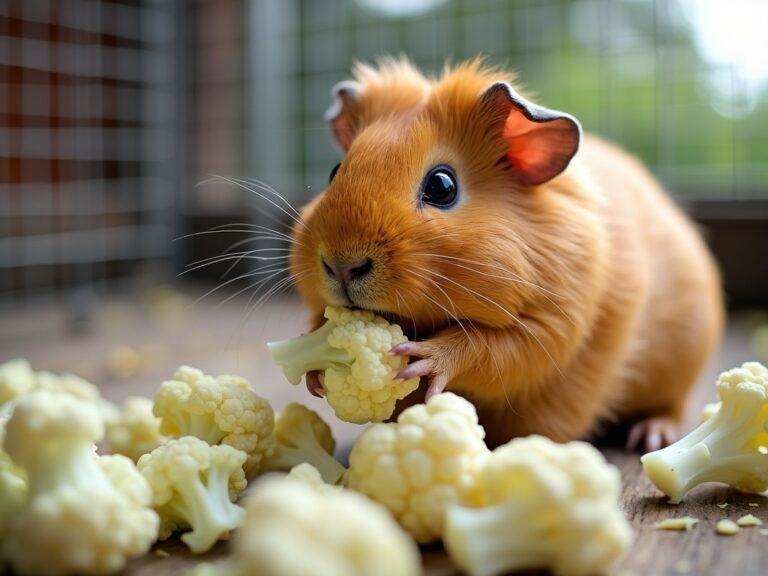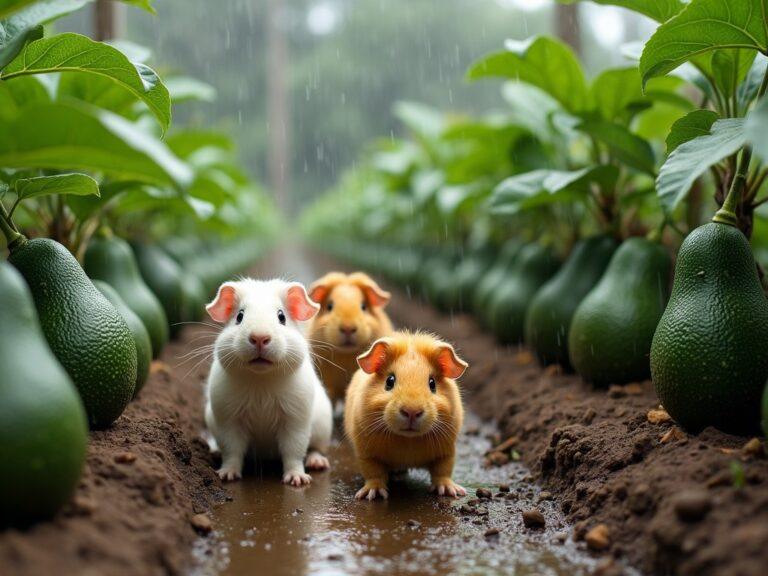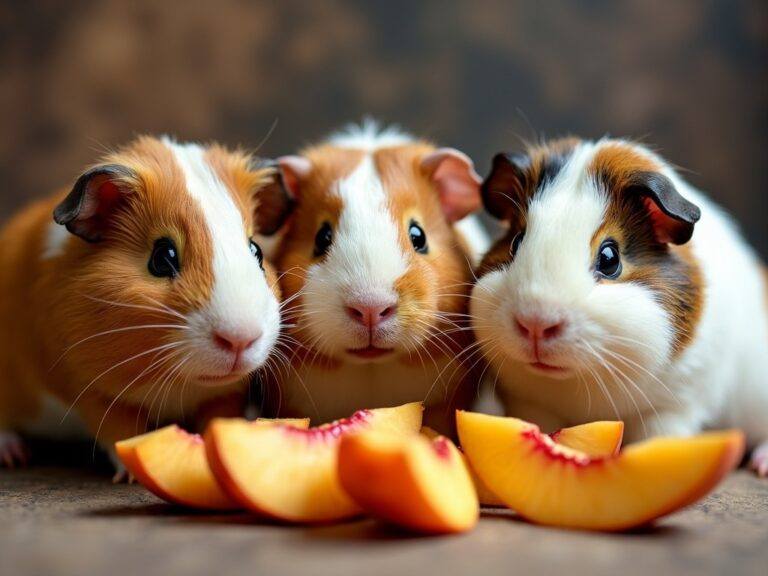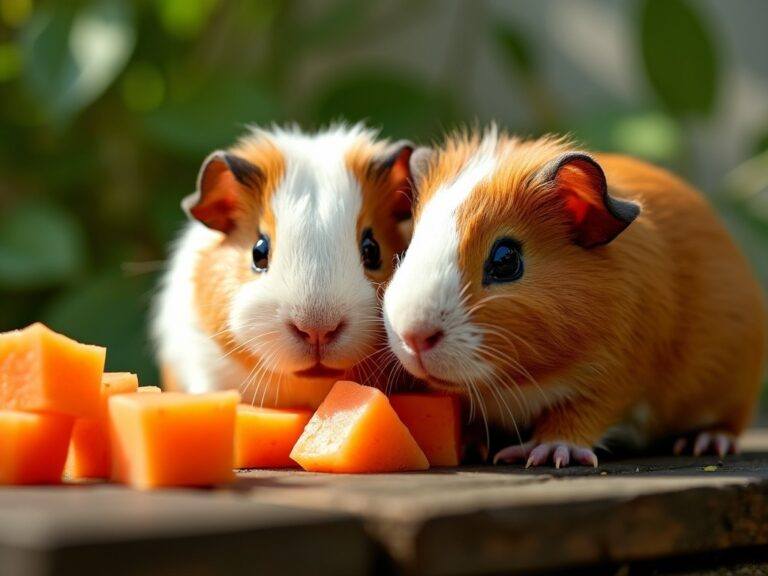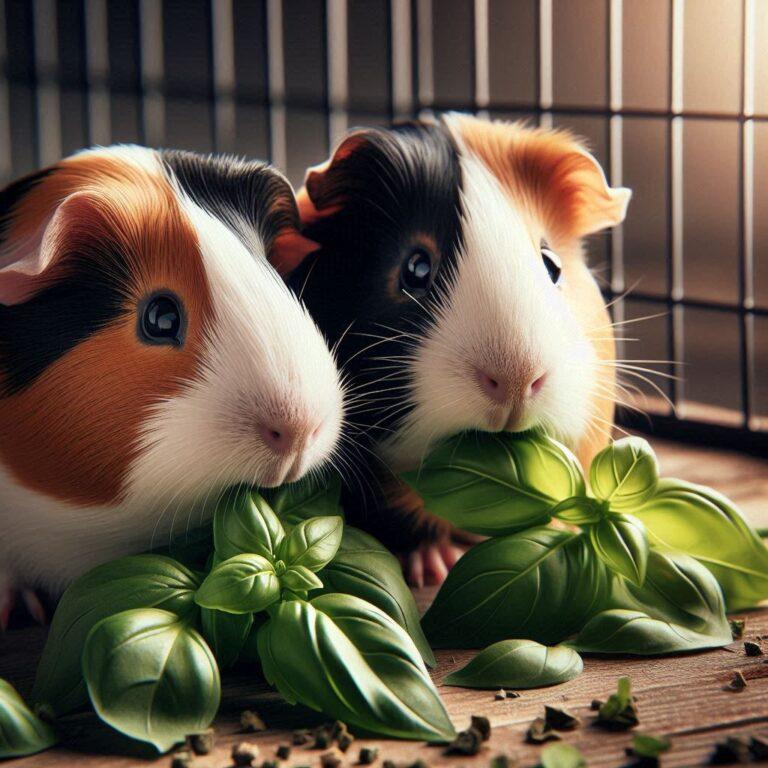Can Guinea Pigs Safely Eat Peas
Yes, guinea pigs can eat peas in moderation. Peas offer several nutritional benefits to guinea pigs, such as vitamins and minerals vital for their well-being. However, it’s essential to give peas sparingly to avoid potential health risks.
Peas are rich in Vitamin C, which guinea pigs cannot produce naturally. This vitamin is crucial for preventing scurvy, a common issue in guinea pigs. They also provide other essential nutrients like fiber, which aids digestion, and protein, which helps in growth and repair of tissues.
While peas are nutritious, feeding too many can cause digestive problems. The high sugar and starch content in peas can lead to bloating and gas.
Moderation is key to preventing these issues. A good rule of thumb is to offer peas as an occasional treat alongside a balanced diet of hay, fresh veggies, and guinea pig pellets.
Ensure the peas you offer are fresh or frozen without any additives like salt or preservatives. Introduce them gradually into your pet’s diet to monitor for any adverse reactions.
If you notice bloating, diarrhea, or lethargy, discontinue feeding peas and consult a veterinarian.
Nutritional Value of Peas for Guinea Pigs
Peas pack a punch when it comes to nutrition, making them a valuable addition to a guinea pig’s diet when used correctly. These veggies are full of essential vitamins and minerals that contribute to your pet’s health.
One of the standout nutrients in peas is Vitamin C. Since guinea pigs cannot synthesize this vitamin on their own, it’s crucial they get it from their diet.
A deficiency in Vitamin C can lead to serious health issues such as scurvy. Including peas as a part of their treat rotation helps ensure they’re getting enough of this essential vitamin.
Peas also contain fiber, which is important for maintaining a healthy digestive system. Fiber helps in preventing common problems like constipation and aids in the smooth passage of food through the gut.
Additionally, the protein content in peas supports tissue repair and growth, making them a good occasional snack for our furry friends.
Comparing peas with other vegetables, they come out quite favorably due to their balanced nutrient profile.
For instance, while carrots are also a treat option, peas have less sugar, making them a slightly healthier choice when it comes to maintaining weight and preventing dental issues.
To serve peas properly, I always go for fresh peas or thawed frozen peas. Avoid canned peas as they often contain added salt and preservatives, which are harmful to guinea pigs.
Also, wash the peas thoroughly to remove any pesticides or chemicals before feeding them to your pet.
Precautions and How Best to Feed Peas to Guinea Pigs
When it comes to feeding peas to guinea pigs, moderation is key. Offering peas as an occasional treat follows the golden rule of keeping everything in balance.
First, be mindful of portion sizes. A couple of peas given once or twice a week is generally safe. Overfeeding peas can cause gas and bloating, which can be uncomfortable and harmful.
Always observe your guinea pig’s reaction after introducing any new food, including peas.
Watch out for signs of digestive issues or allergies. Symptoms like diarrhea, bloating, or lethargy may indicate that peas don’t sit well with your guinea pig.
If any of these signs are observed, it’s best to stop feeding them peas and consult with a veterinarian for advice.
If you’re looking for alternative healthy treats, guinea pigs also enjoy bell peppers, cucumbers, and leafy greens like spinach and romaine lettuce.
Offering a variety of vegetables ensures that your guinea pig gets a range of nutrients without over-relying on a single food source.
Finally, think about long-term dietary considerations. Peas should complement a diet dominated by hay, which should be the staple of your guinea pig’s nutrition.
Fresh vegetables and specialized guinea pig pellets also play vital roles in maintaining their health. Keeping their diet varied and balanced promotes long-term well-being for our furry friends.



